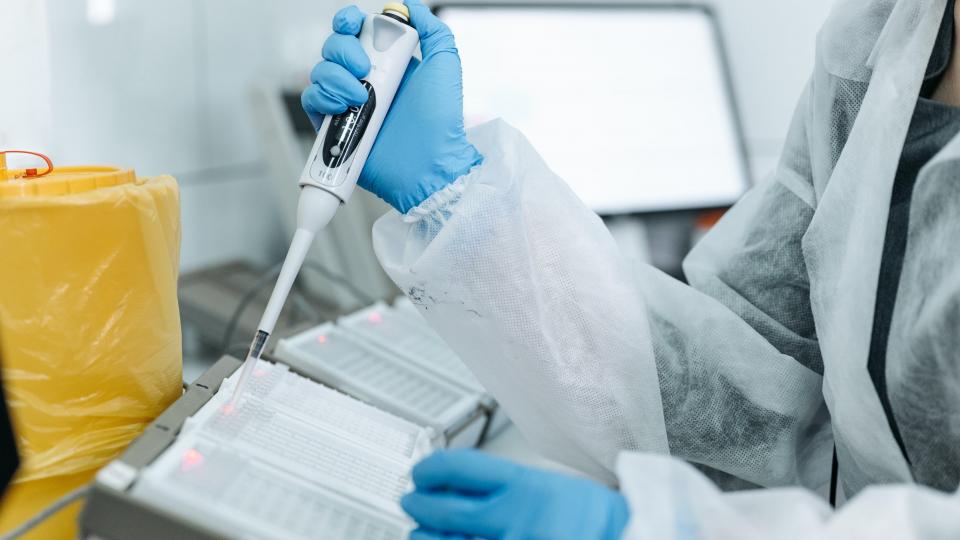
What if our genes could help identify and treat cancer?
Introduction
HOX genes have an important role in our early stages of development as an embryo but are generally switched off when we become adults.
Research led by the University of West London's Professor Richard Morgan, Dean of Biosciences, found that HOX genes are switched back on in cancer cells.
This opened up the possibility that these genes could help identify and treat cancer. The focus of UWL lab-based research on this is trying to understand how to develop drugs that target HOX genes and treat tumours.
Video
The research here at UWL increases therapeutic opportunities and provides a new tool for treating cancer.
Why are the HOX genes relevant to cancer research
What are HOX genes?
Cancer research at UWL focuses on a group of genes called HOX genes, which act as master regulators of cell fate in the embryo, telling cells what they should do, such as whether they should be a nerve cell or a skin cell. The HOX genes are generally switched off after birth, their task completed. However, they are almost always turned back on in cancer cells, and we have shown that they are vital for the survival and growth of tumours.
We have developed drugs that can block the function of HOX genes and have shown that these drugs can prevent tumours growing. Ongoing projects at UWL focus on how these drugs can be used effectively in difficult-to-treat cancers.
HOX genes and cancer treatment
Our original publication demonstrated that one of these drugs – HXR9 – is effective against melanoma, and subsequently we were able to show that HXR9 can prevent the growth of prostate, breast, ovarian, lung, kidney, and head and neck tumours in the lab. For mesothelioma, it is also clear that there is a relationship between the activity of one of the HOX genes, called HOXB4, and patient survival. Patients that have high HOXB4 activity in their tumours generally survive on average for a significantly shorter time than those with low HOXB4 activity.
This provides a potential test to help doctors understand the prognosis of the disease, enabling them to plan treatment accordingly. It also suggests that HXR9, or a similar drug, would be most beneficial to patients who have high HOXB4 activity in their tumours, thereby connecting this therapy to the concept of personalised medicine. HXR9 has now been replaced by a more potent, but similar drug, HTL001. HTL001 has undergone preclinical safety testing and we are hopeful that it will be used in the first human trials next year.
Research team and collaborators
- Prof Richard Morgan, University of West London
- Prof Hardev Pandha, University of Surrey
- Prof Keith Hunter, Director of the Head and Neck Centre, University of Liverpool
- Prof Manuel Penichet, University of California Los Angeles
- Prof Kevin Harrington, Head of Radiotherapy and Imaging, The Institute of Cancer Research
Find out more
Find out more
-
Research Centres and Groups
Find out about our multi-disciplinary areas of expertise, PhD research, and teaching.
-
Research impact
Learn how our PhD research has helped communities locally, nationally and internationally.
-
The Graduate School
If you are interested in studying for a PhD or Professional Doctorate, the Graduate School is here to support your research.







